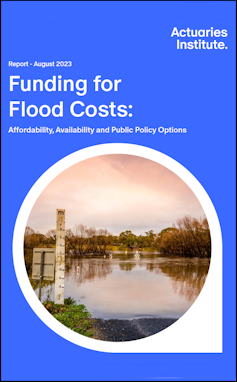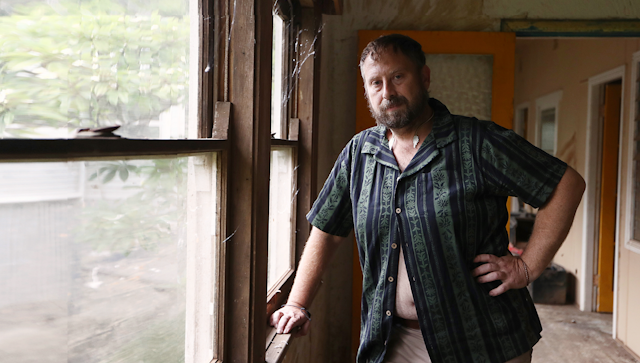The Actuaries Institute of Austalia has just confirmed what many Australian households already know – home insurance is increasingly unaffordable.
It found average premiums climbed 28% in the year to March, while premiums for higher-risk properties, such as those in flood-prone areas, climbed 50%.
The institute also found 12% of Australian households – 1.24 million – are experiencing extreme home insurance affordability stress, defined as paying more than four weeks of gross household income on premiums.
Twelve months ago, this figure was 10%, or 1 million households.

While in the past affordability had been recognised as a problem affecting vulnerable Australians, it has got to the point where it is hitting households across the socio-economic spectrum. And not only in Australia.
Insurers are increasing premiums in locations at high risk of climate-related damage throughout the world and even withdrawing home insurance completely in places such as California and Florida.
The high premiums are spreading to households in lower-risk locations through a complex interconnected system of rising private reinsurance charges (insurance for insurers), more frequent and worse weather events, and increasing rebuilding costs.
The case for a government-owned reinsurance pool
The Actuaries Institute put forward risk pooling as an emergency solution.
It would work through a government-owned and run “reinsurance pool”, providing nationwide coverage for claims relating to extreme weather events. Private insurers would pass on their risk to the state-owned pool, which would use the pooled premiums to ensure every insurer was covered.
In the past, the insurance industry has been overwhelmingly opposed to the idea, viewing it as interfering in a traditionally private market.
As recently as March 2022, as Queensland and NSW reeled in the aftermath of catastrophic flooding and its implications for insurance, the Insurance Council of Australia responded to calls to extend the newly created cyclone reinsurance pool by saying the private sector did things better.
The industry’s concerns are not totally unfounded. Setting up a risk pool without taking steps to mitigate the underlying risk would simply mask, or even exacerbate, the problem. It could facilitate insurance and rebuilding in high-risk areas that will suffer repeated losses.
Risk pools have to include mechanisms that tie insurability to long-term risk reduction through mitigation, updated planning and building regulations, and disaster-resilient rebuilding programs, informed by nationwide data collection.
Governments are stepping in elsewhere
Extreme weather risk pools work in advanced economies around the world.
Some, such as the United States’ National Flood Insurance Program, mask risk while allowing rebuilding in disaster-prone areas. But others, such as those in Spain, France and Switzerland, integrate risk pooling with risk reduction.
Australia would need to draw on the experience of the countries that do it well, doing everything we can to reduce underlying risk, including by changing where and how we build, and relocating people from disaster-prone areas.
Read more: After the floods comes underinsurance: we need a better plan
If we don’t do something along the lines of government-provided and mandated reinsurance, insurance and its enormous benefits will no longer be available to an increasing share of Australians, regardless of their financial means.
The inclusion of the idea in the Actuaries Institute report might be an indication that opposition is softening. The future of home insurance could depend on it.

